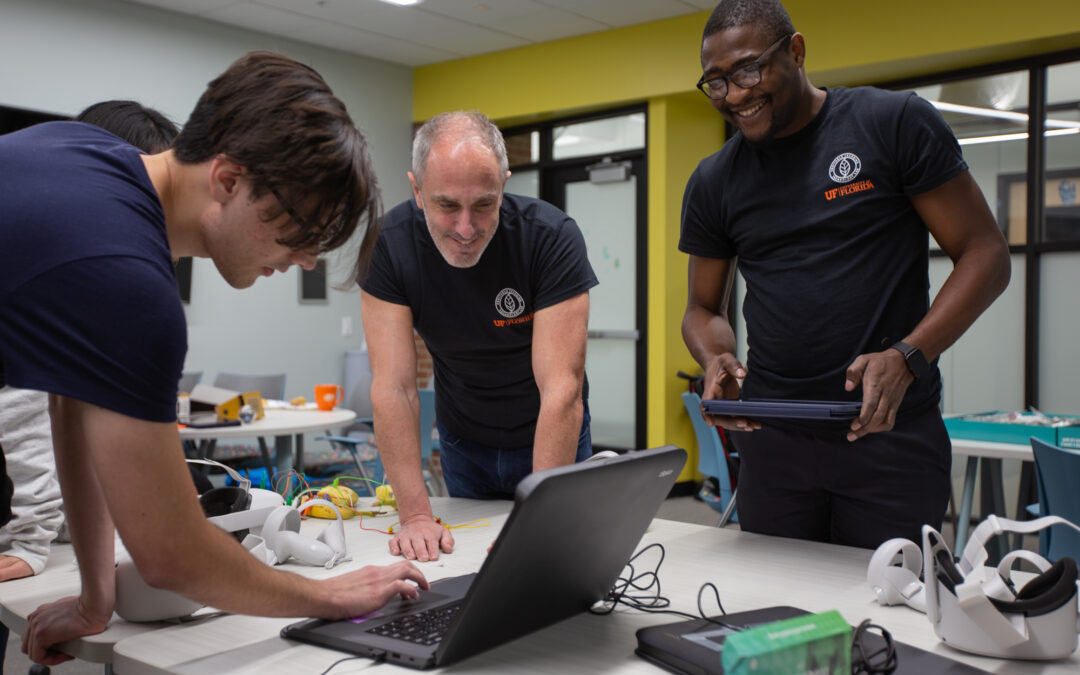Navigating graduate education can present unique challenges for all students, be they academic or personal. However, with the right guidance and support, obstacles can be transformed into opportunities for growth. While many graduate programs utilize traditional one-on- one mentoring, the UF on-campus educational technology programs favor composite mentoring for graduate students. Students in our on-campus Ph.D. and M.A.E. programs frequently mention that composite mentoring is the most unique cultural feature of our programs. For them it is a key element that positively contributes to their academic and career success.
What is composite mentoring?
Composite mentoring is like having a versatile team of mentors by your side as you navigate your academic or professional journey. Becky Wai-Ling Packard, Ph.D., describes it as a model that involves collaboration among mentors from various backgrounds, including peers, faculty members, and even professionals outside academia. With this style of mentoring, you’re exposed to a rich array of perspectives and experiences that contribute to your overall success and well-rounded growth.
Benefits of Composite Mentoring for Graduate Students
So why is composite mentoring for graduate students so valuable? It provides you with a more comprehensive and tailored approach to mentorship. While many graduate programs have students work with one advisor on one project, composite mentoring allows students to work with several faculty mentors on multiple projects. Students interested broadly in their field of study gain valuable insights and skills contributing to their overall success and well-roundedness. This collaborative approach encourages interdisciplinary learning and cultivates a supportive environment conducive to innovation, personal development and employability.
Mentorship in UF Educational Technology Programs
In our on-campus Ph.D. and M.A.E. at the University of Florida, our students receive personalized composite mentoring customized to their career goals. Doing so fosters a supportive community environment that accommodates individual learner differences and promotes inclusivity. Our mentoring promotes collaboration by encouraging students to work with multiple faculty mentors on various endeavors such as course development, nationally funded research projects, and co-authoring peer-reviewed publications. Students build connections across the UF campus through these collaborations, including partnerships with the AI2 Center, the Herbert Wertheim College of Engineering, and the Florida Museum of Natural History.
Through these projects and connections, our graduate students often have the opportunity to publish their research in peer-reviewed journals, further enhancing their academic and professional development.
Student Perspectives on Mentoring
Students in our ed tech programs often remark that composite mentoring is one of the things that sets UF programs apart from those offered by other schools. We sat down with several to ask them how this mentoring style supports their learning and research.
Interested? Find out more
Have questions about mentoring for graduate students or our programs? Feel free to contact us today.


Trackbacks/Pingbacks